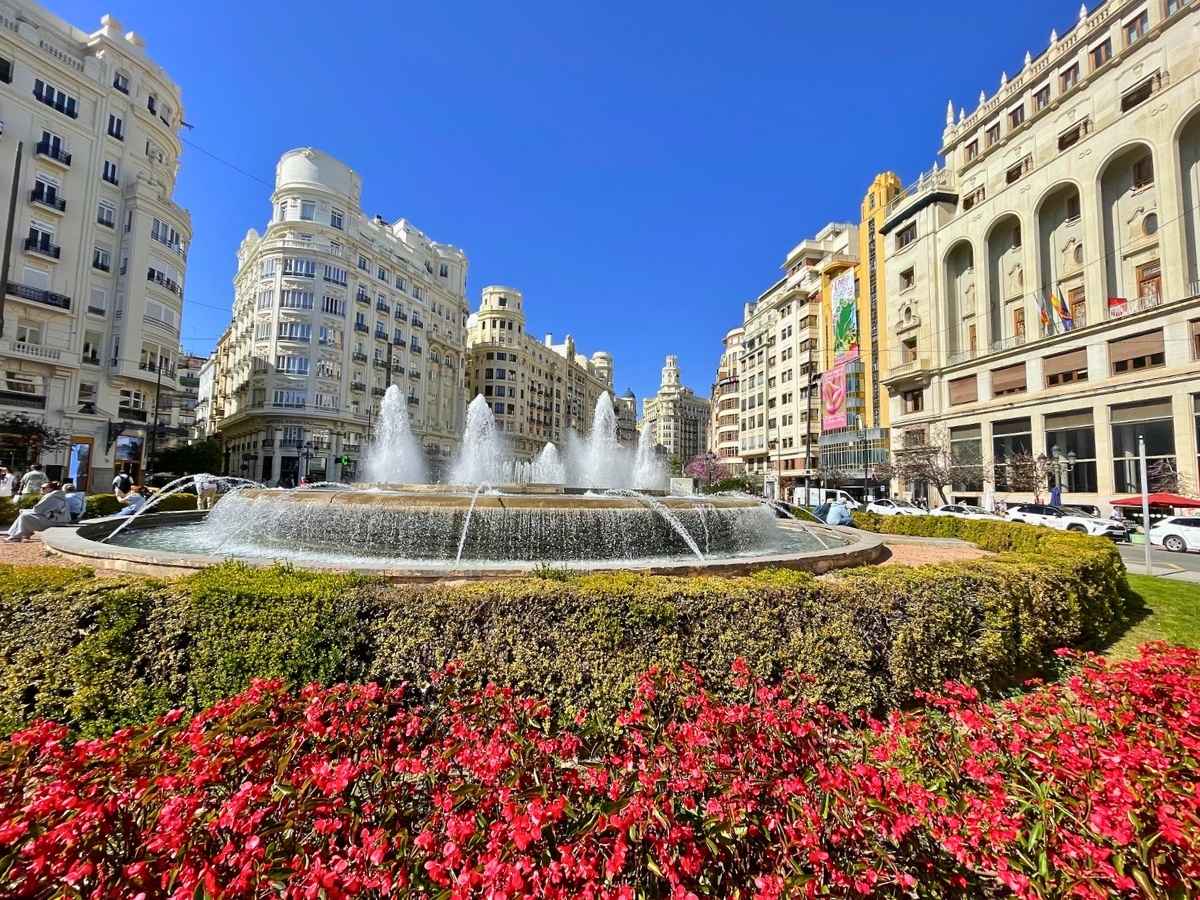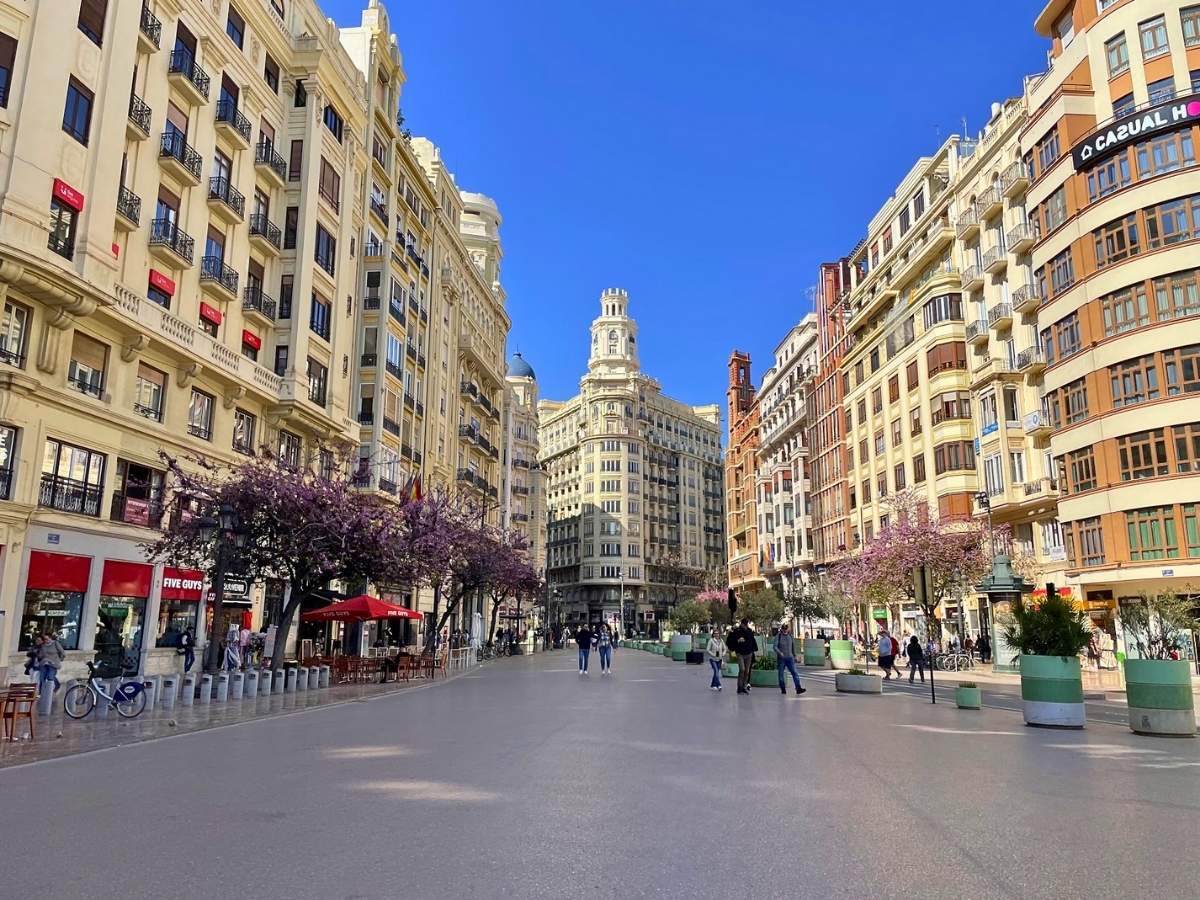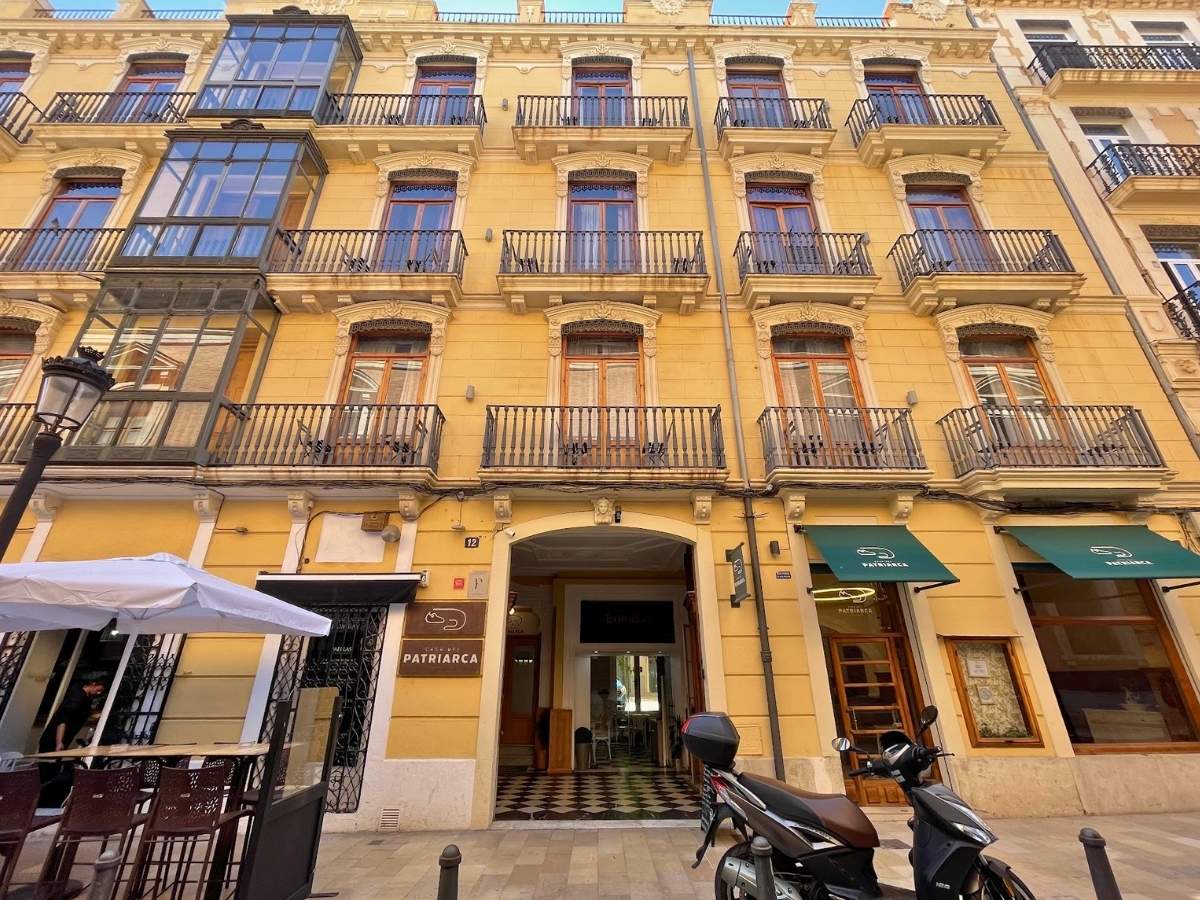Barcelona or Valencia: Which Is Better to Travel to in 2025?


Planning a trip to Spain and can’t decide between Barcelona or Valencia? You’re in the right place!
As a travel blogger that lives in Barcelona, I know how hard it can be to choose between these two amazing cities on the Mediterranean coast.
Each one has its own personality, from famous landmarks and relaxing beaches to delicious food you’ll still be thinking about after your trip.
In this complete Barcelona vs Valencia guide, I’ll break down the main differences to help you figure out which city fits your travel style.
From must-see sights to overall vibes, this guide will help you make the best choice for your Spain itinerary. Let’s get into it!
Which Is Better: Barcelona or Valencia?
Deciding between Barcelona and Valencia really comes down to what kind of travel experience you’re looking for. Barcelona is better if you want iconic architecture, world-famous landmarks, and a wide range of things to do all in one city.
What I love about Barcelona is how easy it is to spend the morning visiting Gaudí buildings and the afternoon by the sea, all without leaving the city.
Valencia, on the other hand, feels more laid-back and local. It’s known for its futuristic architecture, authentic paella, and beautiful green spaces like Turia Park.
If you’re into famous sights and big-city energy, go with Barcelona. But if you prefer fewer crowds, slightly lower prices, and a more relaxed pace, Valencia might be the better pick.


Barcelona vs Valencia: Overview
Both cities offer unique experiences that make them worth visiting, but they cater to different types of travelers. Here’s a closer look at what each city is like:
About Barcelona
Barcelona is a Mediterranean city with a really interesting mix of old and new.
It’s known for Gaudí’s wild, colorful buildings like La Sagrada Familia, Casa Batlló, and Park Güell that make the city look totally unique.
The vibe here is super chill. Think sidewalk cafes, beach views, and local markets where you can grab snacks or fresh fruit.
The Gothic Quarter and El Born are full of winding medieval streets, while the Eixample neighborhood has wide, grid-like avenues and elegant buildings.
You’ll also notice the strong Catalan influence pretty much everywhere from the food to the festivals to the language.
People speak both Spanish and Catalan, but you’ll see Catalan on signs and hear it in everyday conversations while visiting Barcelona.

About Valencia
Valencia feels like a smaller, more laid-back version of Barcelona. It still has beautiful architecture, beaches, and amazing food, but with fewer crowds and a more local vibe.
The City of Arts and Sciences is one of the most famous places to see in Valencia and this futuristic complex honestly looks like it came out of a sci-fi movie.
The historic Old Town (Ciutat Vella) has winding streets, hidden plazas, and cute cafes, while the massive Turia Park (built in a former riverbed) stretches around the city adding lots of green space.
The town is also known for Las Fallas in March, which is one of the wildest festivals I’ve ever experienced, with fireworks, parades, and giant sculptures burned in the streets.
And since Valencia is the birthplace of paella, you’re definitely in for some great meals.
Just one thing I don’t love about Valencia is that it’s not as walkable as Barcelona, especially if you’re hoping to hit the beach.
The Old Town and the beach are pretty far apart, so you’ll need to hop in a cab or take public transportation if you want to do both in the same day.

Barcelona vs Valencia: Pros and Cons
Each city has its pros and cons. Here’s a quick breakdown:
Pros of Barcelona
- Unique Modernist architecture
- Bigger city with more activities and attractions
- Beaches right in the city
- Lots of outdoor cafes, markets, and viewpoints
- Easy to explore on foot
- More direct flights
Cons of Barcelona
- More expensive overall
- High risk of pickpocketing in tourist areas
- Gets very crowded, especially in summer
- Catalan culture may feel different from the traditional Spanish experience
- Slightly cooler weather

Pros of Valencia
- Fewer crowds and more local feel
- Birthplace of paella and great food scene
- Beautiful green spaces like Turia Park
- Las Fallas festival is a one-of-a-kind experience
- More affordable than Barcelona
- Sunny weather, less rain
Cons of Valencia
- Beach is far from the city center
- Not as walkable if you want to combine sightseeing and beach time
- Fewer iconic landmarks
- Smaller city with less nightlife variety
- Fewer direct flights

Barcelona vs Valencia: Location & Accessibility
Both cities are well connected by air and rail, making them easy to reach from international and domestic destinations.
How to Get to Barcelona
Barcelona is one of Spain’s major travel hubs, so getting there is usually pretty easy.
The city’s main airport, Barcelona El Prat (BCN), is much larger than Valencia’s and offers more direct flights from the US and other international destinations.
Once you land, getting from Barcelona airport to the city center is straightforward. You can take the Aerobus, metro, train, or a taxi depending on your budget and where you’re staying.
Getting around in Barcelona is just as easy. The city is super walkable, and the metro, buses, and trams make it simple to reach all the major sights.
For extra flexibility, taxi and ride-sharing apps like FreeNow, Uber, and Cabify are good options too.

How to Get to Valencia
Valencia does have its own airport, but it’s smaller and has fewer international connections compared to Barcelona or Madrid.
If you’re coming from the US or another country outside of Europe, you’ll probably need to fly into Barcelona or Madrid first, then either take a short domestic flight or hop on a Renfe train to reach Valencia.
Once you’re in the city, you likely won’t need to rely on public transportation too much. The Old Town is very walkable, and many of the main sights are close together.
However, if you plan to visit the beach or the City of Arts and Sciences, there are trams, buses, and taxis readily available.

Barcelona vs Valencia: Who Are They Best Suited For?
Now, let’s go over who each of these Spanish cities is best suited for.
Who is Barcelona best for?
Barcelona is a great pick if you’re looking for a destination that combines city life with easy beach access.
It’s perfect if you’re into cool architecture, scenic views, and a laid-back vibe.
If you love good food, art, and a city that feels both local and international, you’ll probably love it here. It’s also a favorite for digital nomads thanks to the lifestyle and strong wifi.

Who is Valencia best for?
If you’re looking for a more laid-back, budget-friendly city, Valencia is a great option. It’s perfect if you want a local vibe, great food, and fewer tourists compared to bigger cities.
And if you love outdoor activities, Valencia has tons of green space and a huge biking culture, especially around Turia Park.
It’s also a solid choice for digital nomads thanks to the good weather, beach access, reliable wifi, and lower cost of living.

Barcelona vs Valencia: Safety Comparison
Now, let’s review each city in terms of safety.
U.S. Department of State Travel Advisory
Officially, the US Department of State travel advisory for Spain is currently Level 2 – Exercise Increased Caution due to terrorism and civil unrest.
It’s the same level as many other popular destinations in Europe, like the United Kingdom, Germany, France, and Italy.
It’s recommended to avoid demonstrations and crowds, and to be aware of your surroundings when traveling to tourist locations and crowded public venues.
The advisory is issued for the country of Spain as a whole and doesn’t specifically mention Barcelona or Valencia as areas of concern.

Crime and Safety Index
When it comes to safety, Valencia generally ranks better than Barcelona. According to Numbeo, Barcelona has a crime index of 51.77 (on a 100-point scale), while Valencia’s is lower at 35.63.
Most of the issues in Barcelona come from petty theft, especially in touristy areas like Las Ramblas, the metro, and popular landmarks. Pickpocketing in Barcelona is common, so you’ll want to keep an eye on your belongings.
Valencia feels more relaxed overall and tends to have fewer problems with street crime.
That said, both cities are safe to visit but you’ll just want to stay alert in crowded areas and use common sense like you would in any big city.

Is Valencia safer than Barcelona?
From my experience–yes, Valencia does feel a bit safer than Barcelona. There are fewer crowds, which means you’re less likely to run into issues like pickpocketing.
I think Barcelona is still safe to visit, but you do need to be more cautious in busy areas like La Rambla, the metro, and major tourist spots. Pickpocketing is the biggest thing to watch out for.
While visiting Valencia, I didn’t feel like I had to be quite as on edge.
That said, no matter where you go, it’s always smart to use a crossbody purse or belt bag and keep your phone secured with a phone leash, especially in crowded places.

Barcelona vs Valencia: Cost Comparison
Now let’s break down the cost of traveling to each city:
How expensive is Barcelona?
Barcelona can be on the pricey side, especially when it comes to hotels and eating out. You’ll usually pay around €150 to €300+ per night for a hotel in the city center, and prices jump even more in the summer.
Food costs can vary a lot depending on where you go. A casual meal might run you €15-€25 per person, while a nicer dinner with drinks can easily hit €40 or more.
Sightseeing adds to the budget too. Tickets for La Sagrada Familia start at €26, and Park Güell is around €18.
Getting around isn’t too bad since public transport is affordable, with a 10-ride metro card costing €12.55. Just keep in mind that taxis and ride-shares can add up if you use them often.

How expensive is Valencia?
Valencia is generally more affordable than Barcelona, but not by a huge amount. Hotels in the city center usually range from €100 to €200+ per night, and prices tend to stay more consistent throughout the year.
Eating out is also a bit easier on the wallet. You can grab a casual meal for around €10-€20 per person, and a nice dinner with drinks usually might be around €35+.
Tourist attractions are reasonably priced too, with many museums and historic sites offering tickets for under €10, or even free entry on certain days. The City of Arts & Sciences tickets range from €7-€30 per attraction.
Public transportation is cheap, but you might not need it much unless you’re heading to the beach or the City of Arts and Sciences. Walking or biking is an easy way to get around the city.

Barcelona vs Valencia: Hotels Comparison
When choosing where to stay, both Barcelona and Valencia offer a variety of accommodations to suit different budgets and preferences.
Hotels in Barcelona
There’s no shortage of places to stay in Barcelona, whether you’re after luxury, something stylish and boutique, or just a plain budget-friendly spot.
If you want to be close to the big attractions without too much noise, Eixample is a great pick. It’s a little quieter, feels safe, and has lots of elegant hotel options.
For more of a historic vibe, check out the Gothic Quarter or El Born. You’ll find boutique hotels and apartments tucked into narrow streets, all within walking distance of great restaurants and nightlife.
And if a beach view is what you’re after, Barceloneta has hotels right by the sea for a more laid-back stay.
Where to Stay in Barcelona
If you’re wondering where to stay in Barcelona, consider these options:
- Luxury: Mandarin Oriental Barcelona
- Mid-Range: Catalonia Catedral
- Budget: Hotel Santa Marta

Hotels in Valencia
Valencia has some great places to stay, and you’ll get a bit more for your money compared to Barcelona.
The Old Town is my top pick if you want to be in the middle of everything. You’ll be close to historic sites, restaurants, and cute cafes, all within walking distance.
Eixample and Ruzafa are also great options. Eixample is a little more polished and residential, while Ruzafa is trendier with lots of bars, coffee shops, and a fun local vibe.
There are also some spa resorts by the beach if you’re after a more relaxing stay, but just keep in mind they’re pretty far from the city center and main sights.
Where to Stay in Valencia
If you’re wondering where to stay in Valencia, consider these options:
- Luxury: Only YOU Hotel Valencia
- Mid-Range: Casa del Patriarca
- Budget: Hotel Dimar

Barcelona vs Valencia: Activities Comparison
Here’s how the cities compare when it comes to activities and attractions:
Best Things to Do in Barcelona
Here are some of the top activities in Barcelona:
- Visit La Sagrada Familia: Antoni Gaudí’s iconic unfinished basilica known as La Sagrada Familia is a must-see, with its towering spires and stunning stained glass interior.
- Explore Park Güell: Park Güell is a colorful park featuring Gaudí’s signature mosaic designs, unique architecture, and panoramic views of the city.
- Stroll through the Gothic Quarter: Wander through the narrow medieval streets of the Gothic Quarter, exploring hidden plazas and historic landmarks like the Barcelona Cathedral.
- Relax at Barceloneta Beach: Enjoy the Mediterranean sun, walk along the promenade, or grab fresh seafood at a beachfront restaurant.
- Take a day trip to Montserrat: Just an hour from Barcelona, Montserrat is a scenic mountain retreat that is home to a historic monastery, hiking trails, and incredible views.

Best Things to Do in Valencia
Here are some of the top activities in Valencia:
- Visit the City of Arts and Sciences: Explore Valencia’s iconic modern complex with museums, an aquarium, and futuristic architecture.
- Explore the Old Town: Wander through historic streets filled with local shops, plazas, and the Valencia Cathedral.
- Relax at the Beach: Head to Playa de la Malvarrosa or Playa de las Arenas for a sunny break by the sea.
- Take a Paella Cooking Class: Take a paella cooking class to learn how to make authentic paella in the city where it was born.
- Stroll Through Turia Park: Walk or bike through this massive green park that winds through the heart of the city.

Barcelona vs Valencia: Restaurants Comparison
Here’s an overview of how the two cities compare when it comes to dining:
Barcelona Restaurants
Barcelona has a killer food scene that blends traditional Catalan dishes with creative, modern cuisine.
You’ll find everything from casual tapas bars to high-end Michelin-starred restaurants and beachfront bars known as xiringuitos.
Seafood is everywhere, and it’s common to see dishes like paella and fideuà on the menu.
Don’t leave without trying local Barcelona foods like pan con tomate, bombas (fried potato and meat balls), and calçots with romesco sauce if you’re visiting in the right season.

Valencia Restaurants
Valencia is known for its laid-back dining scene and, of course, being the birthplace of paella.
You’ll find everything from traditional family-run spots to trendy restaurants serving modern twists on local dishes.
Seafood is a big part of the cuisine here, and dishes like arroz del senyoret and fideuà are worth trying alongside the classic paella.
Valencia is also known for two classic drinks–horchata and Agua de Valencia.

Barcelona vs Valencia: Nightlife Comparison
Here’s how the two cities compare when it comes to nightlife:
Barcelona Nightlife
If you’re looking for things to do in Barcelona at night, the city has no shortage of options.
From beachfront clubs and rooftop bars and hidden speakeasies, the nightlife here really kicks off late and lasts well into the morning.
El Born and Eixample are great for drinks and cocktails, while Port Olímpic is where to go if you’re in the mood to party at clubs by the beach.

Valencia Nightlife
Valencia’s nightlife is definitely a bit more laid-back than Barcelona but still a lot of fun.
You’ll find lively bars around Ruzafa and El Carmen, plus a few clubs if you want to keep the night going.
It’s not as wild as Barcelona, but there are still plenty of places to enjoy a drink, catch live music, or hang out with locals without the huge crowds.

Valencia vs Barcelona: FAQs
Here are the answers to some of the most frequently asked questions about Barcelona and Valencia:
Is Valencia worth visiting?
Yes, Valencia is worth visiting for its mix of historic charm, modern architecture, local food, and relaxed atmosphere. It’s a great alternative to Spain’s larger cities without sacrificing things to do.
Why is Barcelona so popular?
Barcelona is popular for its unique architecture, beaches, lively neighborhoods, and world-class food scene. It offers a great mix of both beach and city life.
What are the best months to go to Barcelona?
The best time to visit Barcelona is in May, June, or September when the weather is warm but not too hot and the crowds are more manageable than in peak summer.
When is the best time to visit Valencia?
The best time to visit Valencia is in the spring or fall, especially March if you want to go to Las Fallas or late September when the weather is still great but the city is less crowded.
How many days is enough in Valencia?
2 days in Valencia is usually enough to see the top sights, explore the Old Town, and try authentic paella. If you want to add beach time or take it slow, a third day is a bonus.

Final Thoughts: Is Valencia or Barcelona Better to Visit?
I hope this guide helped you get a better feel for whether Barcelona or Valencia is the right pick for your trip!
Both cities have a lot to offer, but it really depends on what kind of experience you want.
Barcelona is great if you’re into famous landmarks, beach access right in the city, and a mix of old and modern architecture.
Valencia is a better fit if you’re looking for something more relaxed, with fewer crowds, great food, and a more local vibe.
If you have time, visiting both is a great way to see two different sides of Spain’s Mediterranean coast and getting from Barcelona to Valencia is quick and easy!
But whichever you choose, you’re in for a fun and memorable trip.
READ NEXT:
